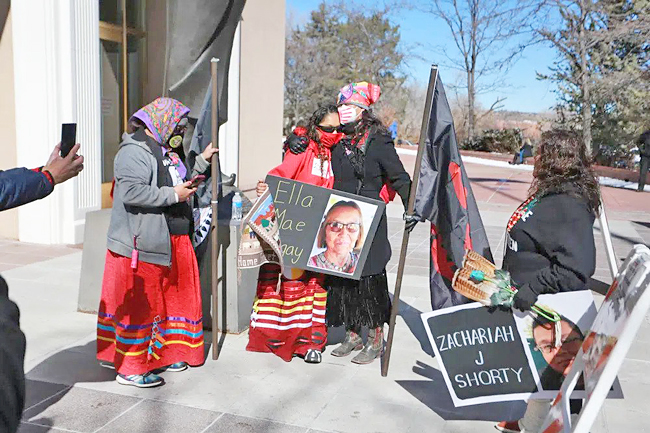FLAGSTAFF, ARIZONA (AP) – A New Mexico man is scheduled to be arraigned on assault and carjacking charges in connection with the 2021 disappearance of a Native American woman, whose case has garnered national attention as tribal leaders and law enforcement address an epidemic of missing person cases and unsolved slayings in Indian Country.
Preston Henry Tolth, 23, has been accused of assaulting Ella Mae Begay and taking her pickup truck. It will be up to a federal magistrate to decide whether Tolth will remain in custody pending trial.
Federal prosecutors said the indictment naming Tolth marked an important step in determining the truth about what happened to Begay, a Navajo woman who was 62 when she disappeared.
Her truck was seen on the morning of June 15, 2021, leaving her home in the remote community of Sweetwater in the Navajo Nation, not far from the meeting point of Arizona, New Mexico, Utah and Colorado.
The investigation is ongoing, the United States (US) Attorney’s Office in Arizona said.
Navajo Nation authorities previously identified Tolth as a person of interest in Begay’s case.

Tolth has a criminal history including charges of aggravated battery, resisting arrest, residential burglary and drug possession dating back to 2019, according to New Mexico court records.
Tolth was already in custody pending the outcome of a 2022 case in which he was accused of stealing a man’s wallet while armed with some kind of sharp weapon, court records show.
Begay’s family has remained committed to finding her and bringing her home.
A year after Begay disappeared, her niece began walking from the Navajo Nation to Washington DC to bring attention to a decades-long epidemic of violence disproportionately affecting indigenous people.
The investigation into Begay’s disappearance is part of the US Department of Justice’s efforts to address cases involving missing and slain Native Americans.
Begay’s family members also have met with US Interior Secretary Deb Haaland, who recently joined Justice Department officials in hosting the first in-person session of the Not Invisible Act Commission in Washington.
The commission is developing recommendations for preventing and responding to violence affecting tribal communities.



